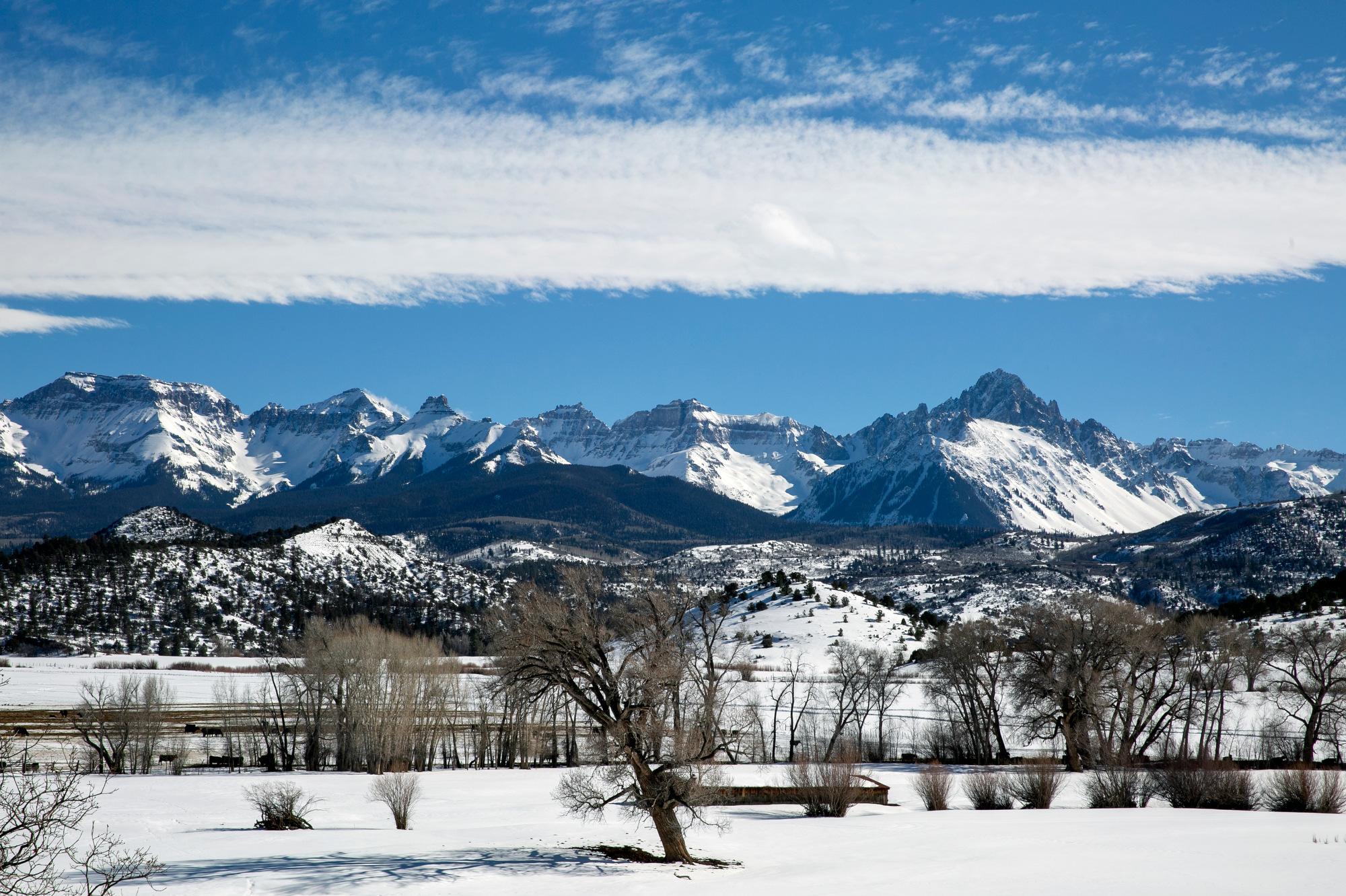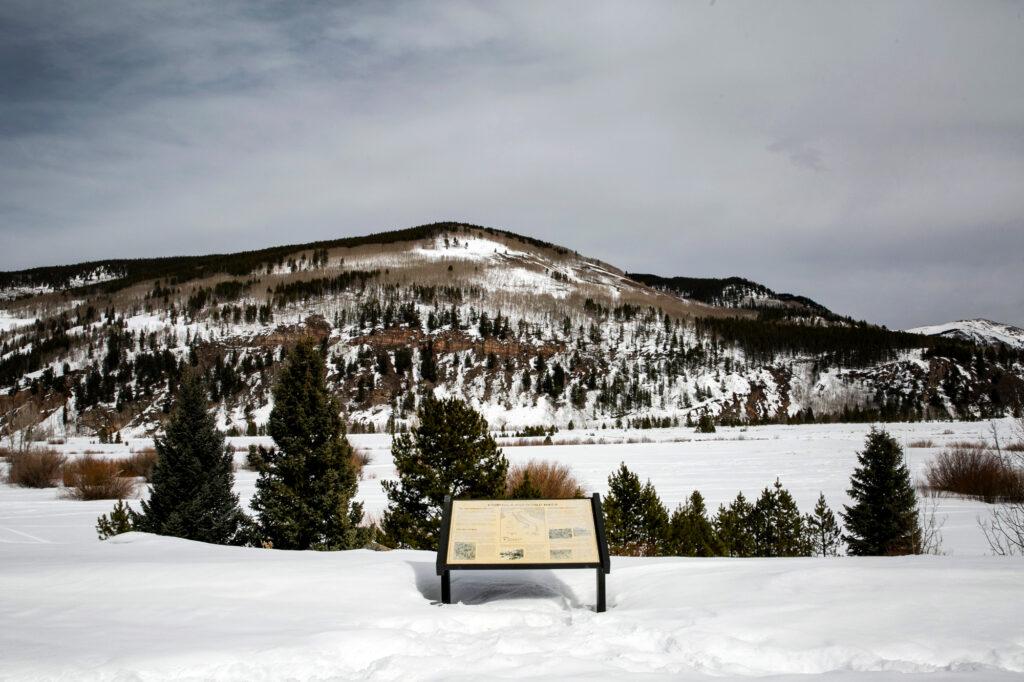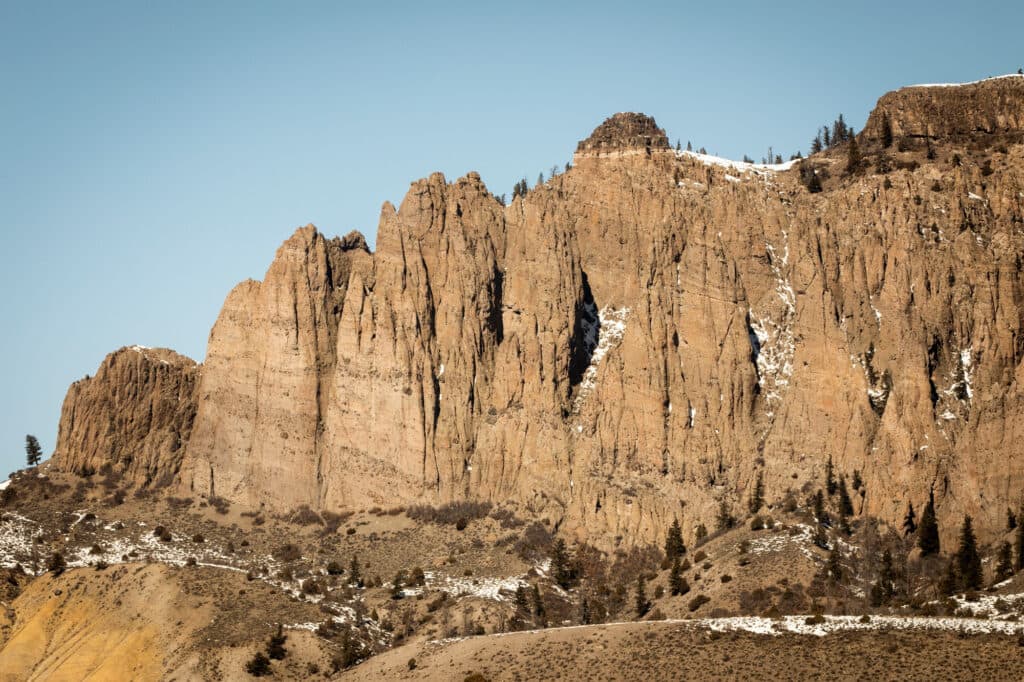
A new senator, a new Congress, and a new administration all added up to a warmer reception for the Colorado Outdoor Recreation and Economy (CORE) Act in a key Senate subcommittee hearing.
The CORE Act had its first Senate hearing of 2021 on Wednesday in the Energy and Natural Resources Committee. The bill would protect 400,000 acres of public land in the Continental Divide, Thompson Divide, the San Juan Mountains and the Curecanti National Recreation Area.
It includes 73,000 acres of new wilderness, creates new conservation management areas and recreation areas, and establishes a first-of-its-kind National Historic Landscape designation for Camp Hale, where the 10th Mountain Division trained during World War II.

In the closing days of the last Congress, the CORE Act faced an uphill climb in the Republican-controlled Senate. Democratic Sen. Michael Bennet has found a clearer path for passage now that Democrats are in charge.
To begin with, he was allowed to testify in support of his bill in the subcommittee, unlike last time.
Bennet told the committee the bill was written by Coloradans “on the ground, in conference rooms, on kitchen tables, and at trailheads” across the state.
“Every provision of this bill reflects thoughtful collaboration between county commissioners, businesses, ranchers, sportsmen, and conservationists who spent day after day working together to iron out their differences,” he said. “They brokered compromises, they adjusted boundaries, and modified designations until the CORE Act reflected their shared priorities”
Support is stronger for conservation effort at this Congress
This time around CORE is also getting a boost from Colorado’s other senator, fellow Democrat John Hickenlooper, who sits on the committee and has joined as a sponsor of the bill.
That’s a change from former Sen. Cory Gardner. When he was in office, the Republican said he wasn’t blocking the bill, but he didn’t back it either. During his campaign against Gardner, Hickenlooper vowed to get CORE passed.
Hickenlooper said he spoke with dozens of bill supporters before coming to the hearing, and he had never seen that level of pride in a bill.
“There were significant, substantial changes made to the program as it went through the 10 long years of work, but what they made is something that is deeply valued by the community that made it,” Hickenlooper said.
His line of questioning focused on the local support for the provisions in the bill.

Another big difference this time around is that the White House and the federal agencies that would oversee much of the land — the National Forest Service and the Bureau of Land Management — came out in support of the bill.
Nada Culver, BLM’s Deputy Director of Policy and Programs, said the CORE Act “aligns with the administration’s climate and conservation goals.”
The bill touches areas across the state, and the hearing included witnesses who spoke to many of them.
Chris French, deputy chief of the National Forest System, said the service is excited by the opportunities Camp Hale’s historic landscape designation would provide. He said they’d reach out to existing users, outfitters and the general public “to ensure that the recreation uses can continue [and] can expand in areas.”
The Biden Administration announced its support of the measure earlier this year, right before the House passed the CORE Act as part of a larger public lands package. The Trump administration had come out against the bill.
The San Juan Citizens Alliance has been pushing for San Juan Mountains designations for over 12 years now. Mark Pearson, executive director of the group, said the bill has been “exhaustively vetted by stakeholders across the San Juans.”
“We are hopeful for action this year by the Senate now that both Colorado senators are cosponsors of the CORE Act,” he said.
While Bennet and Hickenlooper stressed the significant local support for the bill on the ground, there’s still one high-profile local opposed to the measure: the congress member for the 3rd Congressional District.
Boebert opposes the proposal
GOP Rep. Lauren Boebert voted against the CORE Act in the House, just as her predecessor Scott Tipton did. The lands impacted by the bill are largely in her district and she said she was never consulted on it.
She described the bill as a “partisan land-grab promoted by big-city Democrats.”
“While locking up land may sound good to the swamp, it doesn’t work for the people who actually live there,” she said after the hearing. The bill is supported by several groups, including all commissioners from all the counties with land in the bill.
The CORE Act was introduced in the last Congress, and the four areas that make up the bill predate her and even its current House sponsor, Democratic Rep. Joe Neguse.
Neguse, who represents the 2nd Congressional District, has been pushing the bill in the House since he arrived in Washington, D.C. He’s thrilled that the Senate is moving forward with the bill. “The CORE Act invests in the very best of Colorado and preserves our treasured public lands while strengthening our economy through major investments in outdoor recreation,” he said.
Boebert has been vocal about her support for the energy industry on the Western Slope, in particular oil and gas, and has concerns about how it could be impacted by the CORE Act.
“The Thompson Divide withdrawal is a permanent 200,000-acre withdrawal in Colorado that would ban oil and gas development,” Boebert’s office said in a statement. “This withdrawal is a solution in search of a problem since the area of controversy is already administratively withdrawn.”
Boebert’s office added that “common sense changes proposed by [former] Senator Gardner last Congress were also not incorporated.” The office did not specify what those changes were.
Supporters of the bill have countered that while some portions of the Thompson Divide have administrative withdrawals, those are temporary. Ranchers, farmers, and local communities in the area want long-term guarantees.
Bill Fales, a cattle rancher in Carbondale, was among the first in the area to gather around a kitchen table with neighbors to talk about protections for the Thompson Divide. He noted that administrations change. He said it’s “not good policy” if every four years one administration can put in protections and then the next withdraw them; that’s why he’s rooting for the CORE Act.
“I have my fingers crossed,” Fales said. He’s not counting the votes just yet, but would love to see the bill finally signed into law. “It’s such a good win for western Colorado.”









